17 results in Studies in Medievalism

Studies in Medievalism
- (En)gendering Medievalism
-
- Published by:
- Boydell & Brewer
- Published online:
- 14 May 2024
- Print publication:
- 16 April 2024
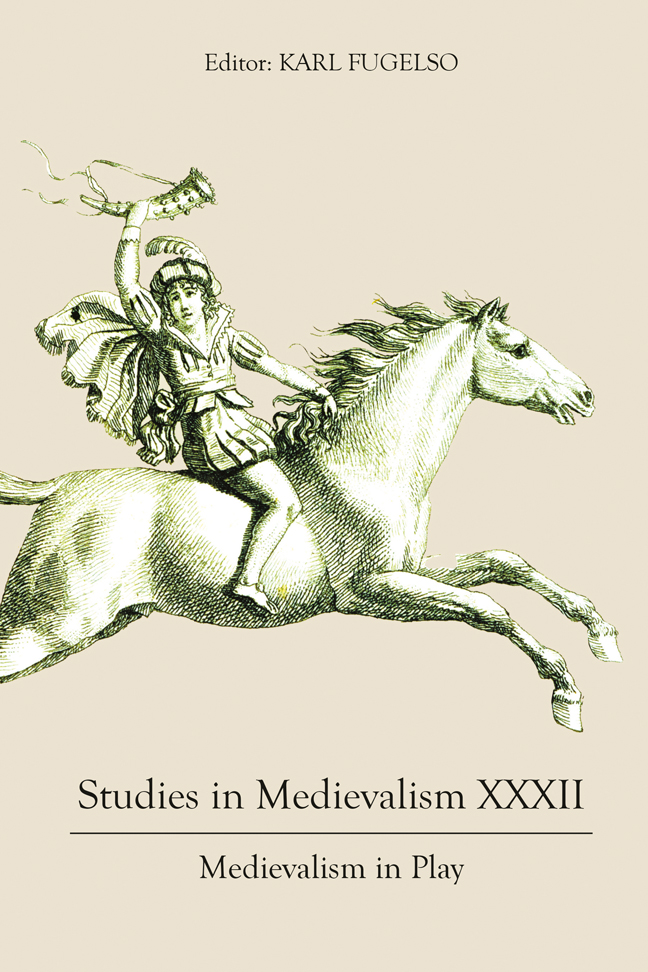
Studies in Medievalism XXXII
- Medievalism in Play
-
- Published by:
- Boydell & Brewer
- Published online:
- 12 January 2024
- Print publication:
- 07 March 2023

Studies in Medievalism XXXI
- Politics and Medievalism (Studies) III
-
- Published by:
- Boydell & Brewer
- Published online:
- 20 December 2023
- Print publication:
- 06 May 2022

Studies in Medievalism XII
- Film and Fiction: Reviewing the Middle Ages
-
- Published by:
- Boydell & Brewer
- Published online:
- 17 March 2023
- Print publication:
- 23 January 2003

Studies in Medievalism
- Defining Neomedievalism(s)
-
- Published by:
- Boydell & Brewer
- Published online:
- 11 March 2023
- Print publication:
- 15 July 2010
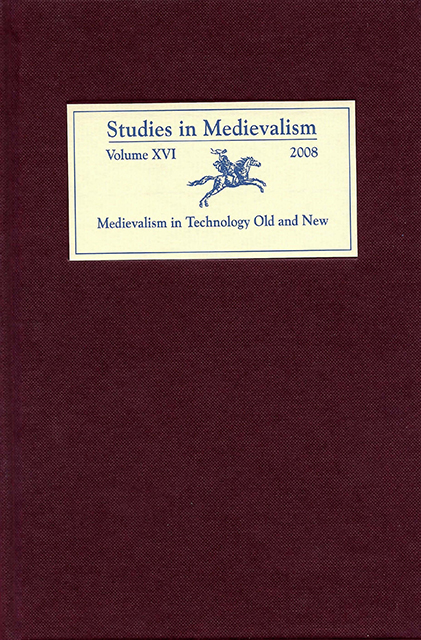
Studies in Medievalism XVI
- Medievalism in Technology Old and New
-
- Published by:
- Boydell & Brewer
- Published online:
- 10 March 2023
- Print publication:
- 21 April 2008

Studies in Medievalism XX
- Defining Neomedievalism(s) II
-
- Published by:
- Boydell & Brewer
- Published online:
- 14 February 2023
- Print publication:
- 16 June 2011

Anglo-Saxonism and the Idea of Englishness in Eighteenth-Century Britain
-
- Published by:
- Boydell & Brewer
- Published online:
- 18 January 2023
- Print publication:
- 20 March 2020

Studies in Medievalism XXVIII
- Medievalism and Discrimination
-
- Published by:
- Boydell & Brewer
- Published online:
- 17 January 2023
- Print publication:
- 22 April 2019
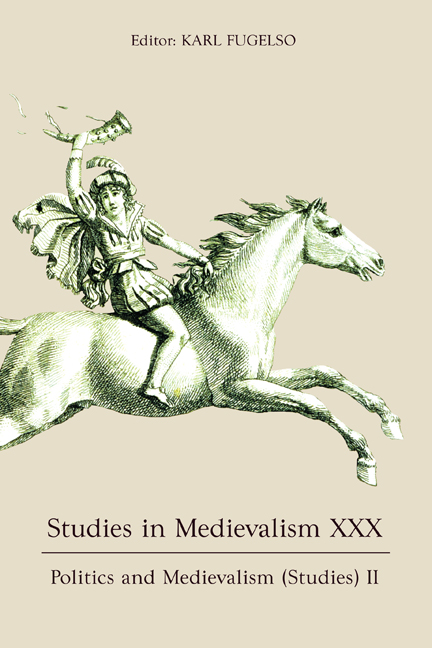
Studies in Medievalism XXX
- Politics and Medievalism (Studies) II
-
- Published by:
- Boydell & Brewer
- Published online:
- 24 March 2021
- Print publication:
- 16 April 2021
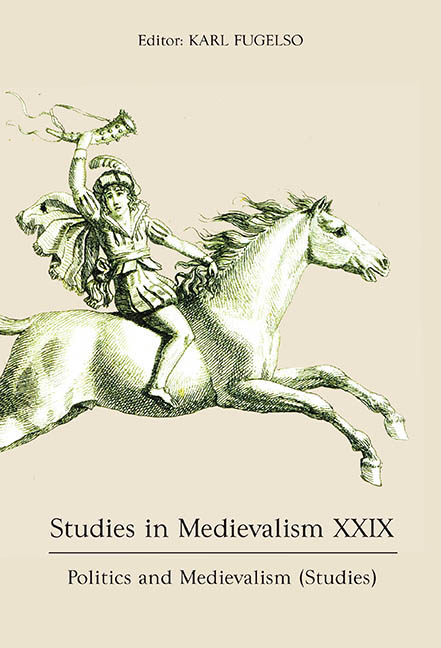
Studies in Medievalism XXIX
- Politics and Medievalism (Studies)
-
- Published by:
- Boydell & Brewer
- Published online:
- 19 August 2020
- Print publication:
- 20 March 2020
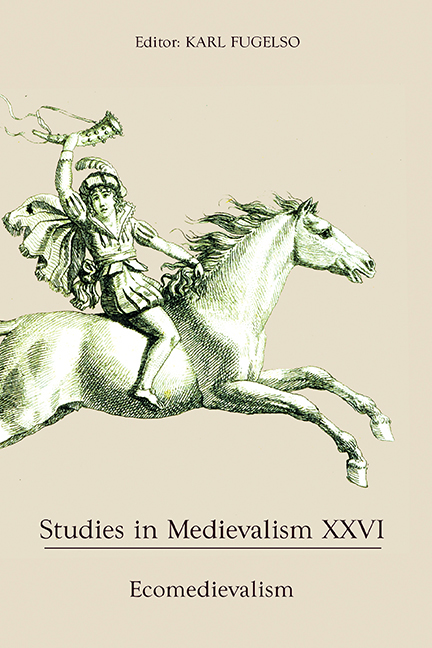
Studies in Medievalism XXVI
- Ecomedievalism
-
- Published by:
- Boydell & Brewer
- Published online:
- 15 September 2017
- Print publication:
- 21 April 2017
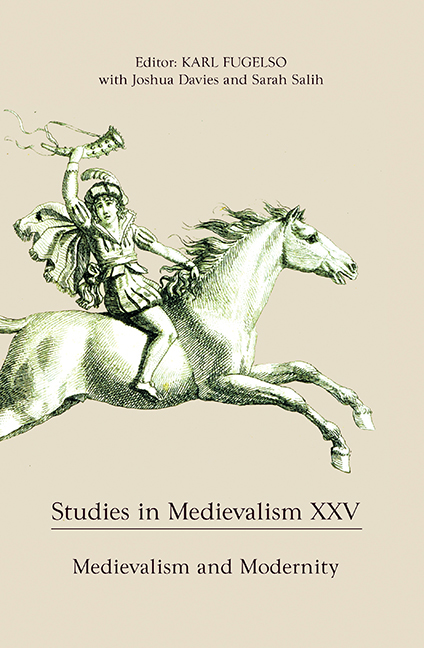
Studies in Medievalism XXV
- Medievalism and Modernity
-
- Published by:
- Boydell & Brewer
- Published online:
- 05 July 2016
- Print publication:
- 21 June 2016
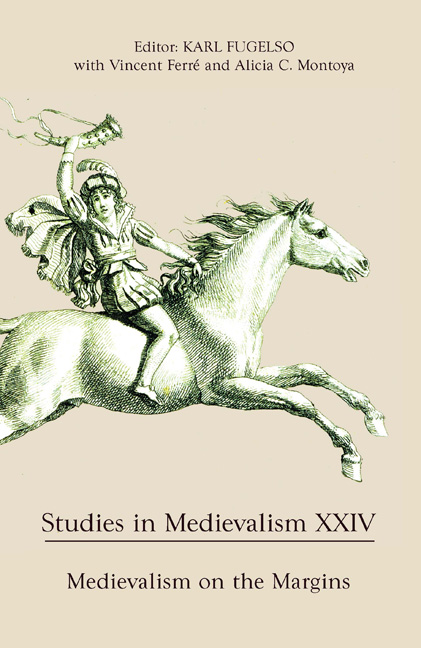
Studies in Medievalism XXIV
- Medievalism on the Margins
-
- Published by:
- Boydell & Brewer
- Published online:
- 05 December 2015
- Print publication:
- 19 February 2015
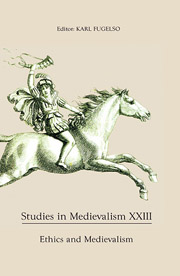
Studies in Medievalism XXIII
- Ethics and Medievalism
-
- Published by:
- Boydell & Brewer
- Published online:
- 05 May 2014
- Print publication:
- 21 August 2014

Studies in Medievalism XXII
- Corporate Medievalism II
-
- Published by:
- Boydell & Brewer
- Published online:
- 05 July 2013
- Print publication:
- 18 July 2013
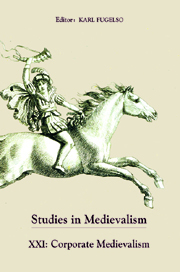
Studies in Medievalism XXI
- Corporate Medievalism
-
- Published by:
- Boydell & Brewer
- Published online:
- 05 February 2013
- Print publication:
- 19 July 2012

